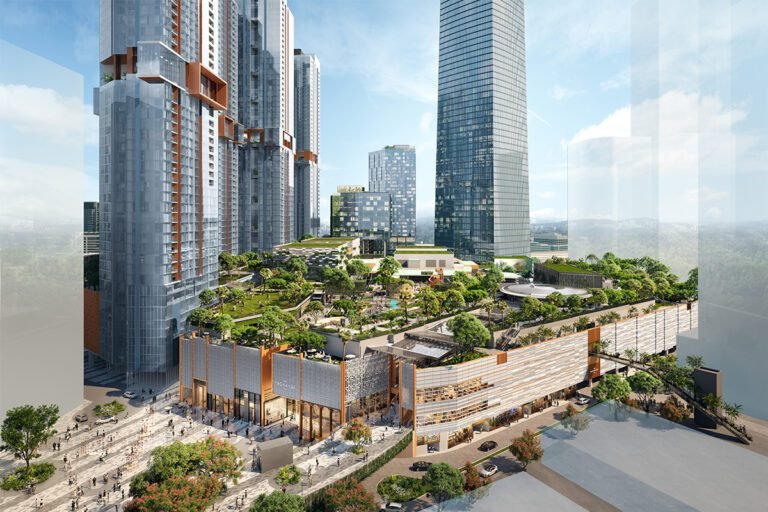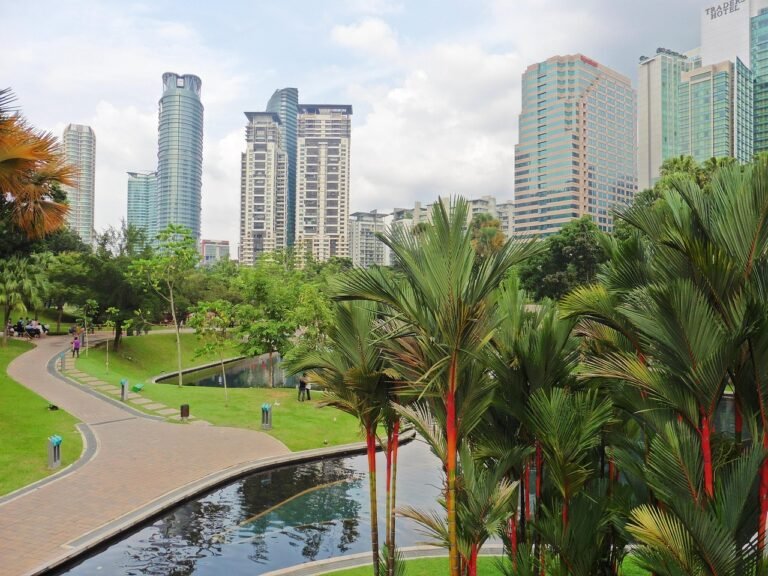Rental Yield in Malaysia: What You Need to Know
With its robust economic growth and dynamic real estate market, Malaysia is increasingly attracting foreign investors to its rental property sector. Blending modernity with tradition, this Southeast Asian nation offers compelling opportunities for property investors. Here’s everything you need to know about rental yield in Malaysia.
Understanding the Malaysian Real Estate Market
Current Market Overview
Malaysia’s property market remains one of the most accessible in Asia for foreign investors. With a mix of high-end developments and affordable properties, the market caters to a diverse range of investors and tenants alike.
Key Investment Areas
Kuala Lumpur, Malaysia’s capital, is the epicenter of real estate investment. The KLCC (Kuala Lumpur City Centre) and Bukit Bintang districts are particularly attractive due to their central location and economic vibrancy. Additionally, Penang and Johor Bahru are promising investment destinations, driven by strong economic growth and high rental demand.
Property Price Trends
Compared to other Asian metropolises, Malaysia remains relatively affordable. In Kuala Lumpur, property prices range between MYR 4,000 and MYR 8,000 per square meter (approximately EUR 800–1,600), with variations based on location and property quality.
Tenant Profile
Malaysia’s rental market is fueled by an expanding middle class, expatriates, and international students. This diversity allows investors to target various segments, from high-end serviced apartments to budget-friendly accommodations.
Legal Framework for Foreign Investors
Foreign Ownership Regulations
Malaysia allows foreign investors to purchase property, subject to certain conditions:
- A minimum purchase price that varies by state (typically between MYR 500,000 and MYR 1 million)
- Restrictions on specific property types (e.g., agricultural land, single-story houses)
- Potential approval requirements from the Foreign Investment Committee for certain transactions
Taxation and Fees
Malaysia’s tax system is investor-friendly, with several advantages:
- Progressive rental income tax (0–30%)
- Low annual property tax
- No capital gains tax after five years of ownership
- Deductible expenses (maintenance, insurance, mortgage interest)
Buying Process
The property acquisition process in Malaysia follows a structured approach:
- Signing a reservation agreement
- Conducting due diligence and verifying property ownership
- Signing the sales and purchase agreement
- Securing necessary approvals
- Completing the property transfer
Rental Yield Analysis
Average Rental Income by Area
Rental yields in Malaysia vary by location:
- KLCC: 4–6%
- Bukit Bintang: 5–7%
- Penang: 4–5%
- Johor Bahru: 4.5–6.5%
Key Expenses to Consider
To calculate net rental yield, investors should account for:
- Maintenance fees
- Property tax
- Insurance
- Property management fees
- Repairs and renovations
- Potential vacancy periods
Yield by Property Type
Rental returns differ depending on the property type:
- Studios and small apartments: 6–8%
- Family-sized apartments: 4–6%
- Luxury properties: 3–5%
Maximizing Investment Returns
Rental Strategies
Investors can optimize rental income through various approaches:
- Long-term rentals for stable returns
- Short-term rentals (e.g., Airbnb) in high-tourism areas
- Co-living arrangements to maximize occupancy
- Furnished rentals targeting expatriates
Property Management
Owners can choose between:
- Self-management
- Delegating to a local property agency
- A hybrid model with remote oversight
Enhancing Property Value
To increase property appeal:
- Regular renovations
- Modernizing appliances and fixtures
- Aligning with local market preferences
- Staying informed on market trends
Risks and Opportunities
Potential Risks
Market Fluctuations
The Malaysian real estate market is cyclical, with potential risks including:
- Temporary oversupply in certain areas
- Economic downturns affecting demand
- Changes in government regulations
Geopolitical Risks
Investors should consider:
- Malaysia’s political stability
- International relations and foreign ownership policies
- Regulatory shifts that could impact the property market
Currency Exchange Rate Fluctuations
Variations in the Malaysian Ringgit can influence:
- Property value in foreign currency
- Rental income conversion rates
- Transaction costs for foreign investors
Growth Potential
Infrastructure Developments
Malaysia is continuously upgrading its urban infrastructure:
- Expansion of business districts
- Transportation network enhancements
- Development of special economic zones
Demographic Trends
Key factors driving demand include:
- A young, growing, and skilled workforce
- Increasing urbanization
- Rising numbers of skilled immigrants
Economic Projections
Malaysia’s stable economy supports property investments with:
- Sustained GDP growth
- Expansion of the service sector
- Strong foreign investment inflows
FAQ
Can foreigners get a mortgage in Malaysia?
Yes, some Malaysian banks offer loans to foreigners, typically requiring a 30% down payment and slightly higher interest rates.
Which areas offer the highest rental yields?
Central Kuala Lumpur, particularly KLCC and Bukit Bintang, provides the most attractive rental returns.
How can I manage my property remotely?
Engaging a local property management agency is recommended to handle tenant relations, maintenance, and administrative matters.
What common pitfalls should investors avoid?
- Not verifying property ownership
- Underestimating ongoing costs
- Neglecting property condition
- Ignoring legal restrictions
- Misjudging local rental demand
What is the best type of property for first-time investors?
A mid-sized apartment in a modern, well-located building often offers the best balance between risk and rental yield.
Conclusion
Malaysia’s rental property market presents a lucrative opportunity for foreign investors, with attractive yields and a favorable legal framework. Major cities, particularly Kuala Lumpur, show strong potential for long-term growth.
However, investing abroad requires careful preparation and in-depth market knowledge. Collaborating with local professionals—including real estate agents, lawyers, and property managers—is highly recommended for a successful investment.
With a strategic approach and a well-planned investment, rental property in Malaysia can be an excellent asset diversification option, offering both attractive returns and long-term capital appreciation.
Smart Invest Malaysia helps you navigate the Malaysian real estate market with expert insights and guidance. Explore your investment opportunities today!





